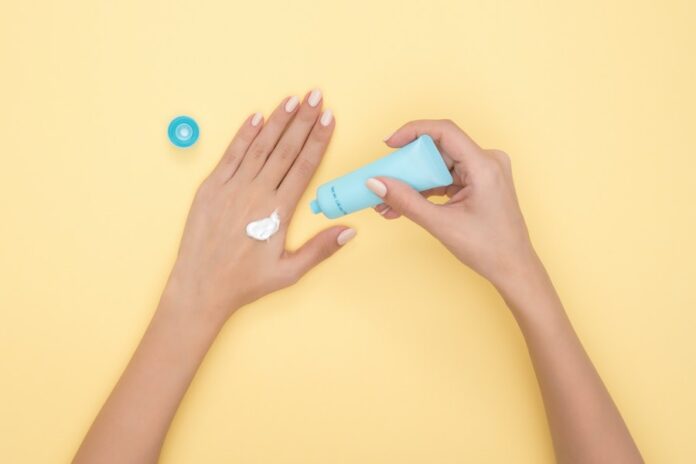With so many of us becoming busy and tired because of work or school, the hectic nature may mean we sometimes forget to take care of our bodies.
As one of the bodily organs you can see, your skin indicates how well you take care of yourself. At this point, it’s common knowledge to take care of your skin, but how often does the average person do it? Why is it essential to maintain it?
Making a conscious effort to hydrate your skin will make you look good by giving you brighter, glowing skin, and feeling softer and plumper. With the woes associated with dehydrated skin, moisturizing can eliminate these and even solve your skin problems!
What Is Hydrated Skin And Why is It Important?
If you’re someone who has hydrated skin, that means your skin is receiving an adequate amount of water content. When your skin is properly hydrated, it looks smooth, healthy, and radiant.
Achieving hydrated skin can differ from person to person and their genetic makeup, but anyone can achieve this through diet, lifestyle changes, and beauty routines.
When not receiving enough water or moisture, your skin can lose its elasticity, and the results are it’ll be rough, irritated, and prone to inflammation. Additionally, loss of proper moisture exposure can prevent the outer layer of the skin, known as the epidermis, from doing its job correctly, eliminating toxins and distributing nutrients to other parts of your skin.
By continuously hydrating your skin, you better its chances of fighting off infections, irritants, and harmful debris that can otherwise affect its health.
How To Hydrate The Skin
While having good skin can result from genetics, keeping moisture intact takes a lot of hard work and dedication. Making a habit of the following steps can help keep your skin healthy and in tip-top shape.
- Drink lots of water
Though drinking water alone may not be the solution to having hydrated skin, it does help the process in the long run. The benefits of habitually taking in enough water include flushing out toxins that can harm your health, balancing the pH levels of your skin and making it healthier, and reducing wrinkles and pimple breakouts.
- Wear sunscreen
Daily sunscreen application gives your skin an added layer of protection and keeps it safe from sunburns and UV rays. The common impression is that you should only use sunscreen when you’re out on the beach or swimming, but generally, this should be done every day, even on cloudy days—whether indoors or not.
Additionally, regularly wearing sunscreen reduces your chances of skin cancer and premature aging.
- Using a humidifier
Using a humidifier in your bedroom or any other areas you spend a lot of time in will enhance the air’s humidity and prevent your skin from losing as much moisture. This is particularly important in the colder months when the air in our houses tends to become quite dry from high heat.
- Try lukewarm showers
Although it may appear on the surface that hot showers and baths would help soothe dry skin, it’s the opposite. Hot showers and baths cause water from your skin to evaporate, dehydrating the skin.
The best showers are quick ones that are lukewarm so that the water stays inside the skin. Look for ingredients, like hyaluronic acid, in body washes that will draw water in and enhance the effects of hydration to lock in that water content.
- Use the right moisturizer for your skin type
One of the best ways to keep your skin hydrated is daily moisturizing, usually after a bath or shower. Moisturizing during this time is essential since showering strips your skin of moisture and oils. Returning the moisture to your skin helps it stay young and reduces the possibility of skin issues.
Choosing the right moisturizer can take a bit of experimenting before finding the one best suited for your skin. Considering the ingredients and how they’ll react to your skin, it’s essential to do the necessary research before testing them on yourself.
- Regularly exfoliate
While not a direct contributor to having hydrated skin, exfoliating does help keep your skin clean from dead cells and improve how the skin feels. Having cleaner skin enhances the efficiency of products your skin absorbs since dead skin cells no longer pose as an obstruction.
- Eat food rich in antioxidants and healthy fats
You can use all the beauty products in the world, but when you eat junk food or drink beverages that make you dehydrated, such as caffeinated and alcoholic drinks, then all your hard work will be in vain.
Eating food that is hydrating and rich in healthy fats and antioxidants can help improve the complexion and texture of your skin. These include cucumbers, squash, salmon, sweet potatoes, and apple cider vinegar.
These also extend to vitamins and health supplements since vitamin C, vitamin D, collagen, and fish oil help improve skin hydration.
Keep Your Skin Up!
Maintaining a routine that is equal parts beauty regimen and a healthy diet is a straightforward solution if you want to have hydrated and great skin. This even applies if your skin may look dull or inelastic, as incorporating the same tips can help rejuvenate the most noticeable organ in your body.






















